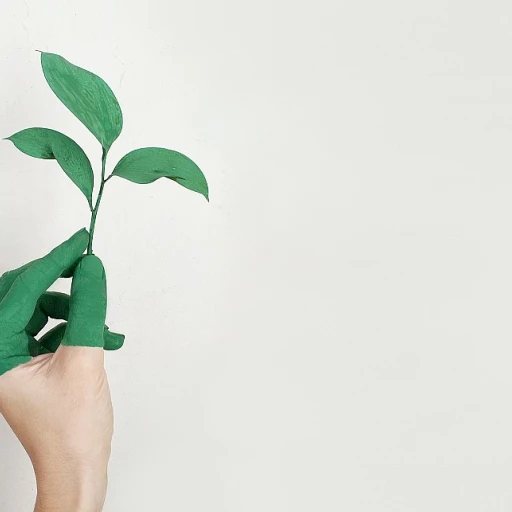
Understanding the Plumbing Profession
Delving into the Plumbing Industry
The plumbing profession is an essential trade that involves installing, maintaining, and repairing piping systems, fixtures, and other equipment used for water distribution and waste disposal. Plumbers are crucial to ensuring the efficient and safe operation of plumbing systems across residential, commercial, and industrial settings.
Becoming a plumber offers a viable career path with opportunities for growth and specialization. Whether it's installing new pipes in a construction site, troubleshooting existing plumbing issues, or designing plumbing systems for new projects, the profession requires a solid understanding of how plumbing works.
Several layers of skill and knowledge are involved in this trade, and gaining proficiency in plumbing typically requires a combination of formal education and hands-on experience. The foundational knowledge necessary for this field is often obtained through trade schools, dedicated plumbing programs, or an apprenticeship program, where aspiring plumbers work under experienced mentors. These educational pathways lay the groundwork for aspiring plumbers to develop both technical skills and practical knowledge.
Moreover, the journey to becoming a licensed plumber varies from state to state. After acquiring the necessary experience and completing a recognized training program, candidates typically need to pass a licensing exam to demonstrate their competence and understanding of relevant codes and regulations. A plumbing license grants the authority to work independently and is a prerequisite for certain advanced roles in the industry.
For those looking to advance further, becoming a journeyman plumber or even a master plumber is a potential goal. Master plumbers have attained the highest level of expertise in the trade, often involving years of additional experience and further examination.
The plumbing field offers various upskilling opportunities, allowing professionals to specialize in areas like gas piping, water systems design, or environmentally sustainable plumbing solutions. Whether through formal education, apprenticeships, or job training, developing a robust skill set can significantly enhance career prospects in this trade.
Educational Pathways to Plumbing
Choosing the Right Path to Becoming a Plumber
Embarking on a career to become a plumber involves understanding various educational pathways. The options available cater to diverse learning preferences and financial circumstances. Each has its unique benefits, so it's essential to consider what aligns best with your career goals. First, attending a traditional high school is a common starting point. Although it may not provide specialized plumbing training, completing high school is often a requirement for entering more advanced plumbing education programs. High school graduates enhance their ability to succeed in subsequent training stages. Opting for a trade school or a plumbing school is a popular choice for many prospective plumbers. These institutions offer a targeted curriculum, teaching essential plumbing systems and principles. Typically, a full-time plumbing program in a trade school can take around 1-2 years to complete. Such programs are beneficial not only for gaining knowledge but also for developing practical skills that are crucial in the plumbing profession. Apprenticeships are another avenue for those seeking on-the-job training while learning. An apprenticeship program provides an excellent blend of hands-on work and education, often conducted under the supervision of seasoned plumbers or master plumbers. These programs typically require a multi-year commitment, often lasting 4-5 years, but they equip you with invaluable experience that is instrumental in your journey to becoming a licensed plumber. After completing an apprenticeship or formal education, the next step is passing a plumbing license exam. Achieving a plumbing license can open doors to more advanced positions and opportunities for specialization. Licensing requirements and the exam content can vary, so it's important to be aware of the specifics within your state or city, such as in New York City. While considering these pathways, don't overlook the potential for unlocking opportunities through free training and resources, particularly useful for those unemployed or transitioning careers (explore available free programs). Whichever path you consider, the journey involves dedication and a commitment to lifelong learning, making the trade a rewarding yet challenging career choice.Time Commitment for Plumbing Training
Dedication and Timeline for Plumbing Mastery
Embarking on a career as a plumber is a process that requires a dedicated commitment to education and hands-on experience. On average, the journey to becoming a fully qualified plumber can take several years, influenced by the educational pathway chosen and the level of certification desired.
Most individuals begin their plumbing career through an apprenticeship program, a structured training program offering both classroom education and on-the-job training. These programs typically span four to five years. Throughout this period, aspiring plumbers gain invaluable practical experience while earning a wage alongside their studies. This dual approach ensures that they are well-versed in plumbing systems and best practices when they enter the workforce full-time.
For those pursuing a more academic route, enrollment in a trade school is an alternative to apprenticeships. A plumbing education program through a trade school usually takes about two years to complete and provides foundational knowledge in plumbing codes, safety, and basic repair techniques. However, even for those who attend plumbing schools, additional time spent gaining hands-on experience through apprenticeships or entry-level jobs is often necessary.
After completing the required training and accumulating sufficient work experience, aspiring plumbers must pass a licensing exam to become a licensed plumber. The licensing process varies by region. For instance, in York, city-specific regulations may influence the exact requirements for taking the exam and attaining a plumber license.
While the path to becoming a master plumber might be lengthy, involving additional years of experience and further certification, each step of the journey contributes significantly to a plumber's professional growth and opens more advanced career opportunities. Master plumbers often hold leadership roles or start their own businesses, highlighting the potential for significant career advancement in the trade.
For those eager to continue honing their skills and mastering new ones, there are always opportunities to upskill and grow within the field, making this career path both challenging and rewarding.
Upskilling Opportunities in Plumbing
Exploring Long-Term Growth with Advanced Training
Upskilling in plumbing isn't just about the basics; it's a path towards becoming a master in the trade. While initial training programs may give aspiring plumbers a solid foundation, embracing advanced training opportunities ensures continued career growth. For those who are already working in the field and hold a journeyman plumber status, pursuing an apprenticeship program is an effective way to broaden skillsets. These programs often extend beyond initial training school experiences, offering deeper insights into complex plumbing systems encountered in diverse projects. Moreover, pursuing a master plumber license can significantly enhance job prospects. This often requires comprehensive knowledge of advanced plumbing techniques, along with years of experience in the field. It's a rigorous path, involving more exams and intensive work, yet proving invaluable in establishing authority within the trade. In certain locales, such as New York City, where building standards are demanding, mastering the plumbing trade becomes crucial. Here, obtaining a plumbing license aligned with local regulations significantly bolsters credibility and job opportunities. For those striving to balance work with further education, many valuable resources are available. Online courses and flexible education pathways allow plumbers already engaged in full-time job commitments to expand their expertise without needing to leave the workforce. By investing time in these advanced training opportunities, plumbers not only climb up the professional ladder but also ensure long-term job security in a constantly evolving industry. Whether in school or on the job, continued learning is essential to maintain relevance and achieve career success in the plumbing profession.Balancing Work and Training
Juggling Work and Plumbing Training
Balancing work and training can be a challenging aspect of becoming a plumber. Many aspiring plumbers find themselves needing to work while completing their training programs, whether they are enrolled in a trade school or an apprenticeship program. This balance is crucial, as it allows individuals to gain practical experience while also supporting themselves financially.
Here are some strategies to help manage both commitments effectively:
- Flexible Scheduling: Look for training programs that offer flexible schedules. Many trade schools and apprenticeship programs understand the need for flexibility and offer evening or weekend classes.
- Employer Support: Some employers may offer support for employees pursuing further education. This can include flexible work hours or even financial assistance for training programs.
- Time Management: Effective time management is essential. Prioritize tasks and set a schedule that allows for both work and study time. This might mean dedicating specific hours each day to focus on your plumbing education.
- Online Resources: Utilize online resources and courses to supplement your learning. These can often be accessed at any time, making it easier to fit into a busy schedule.
By carefully managing your time and seeking out supportive work environments, you can successfully balance the demands of work and training. This approach not only helps you gain valuable experience but also sets a strong foundation for your future career as a licensed plumber.













